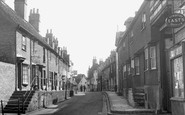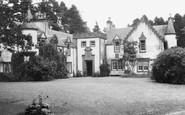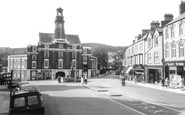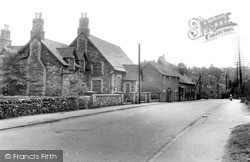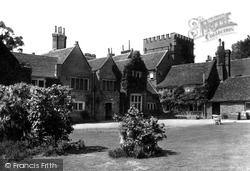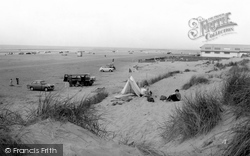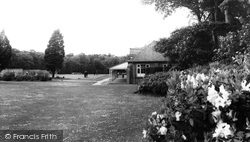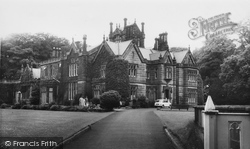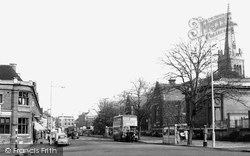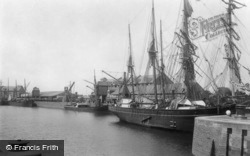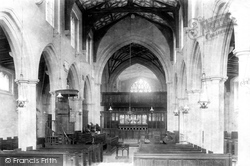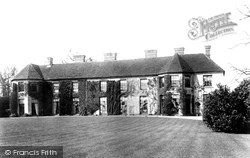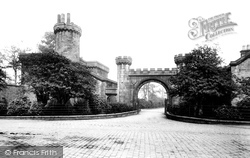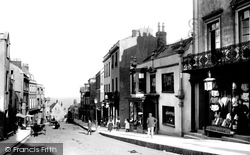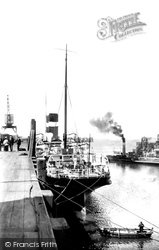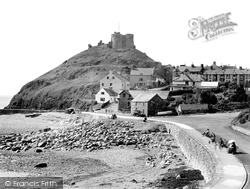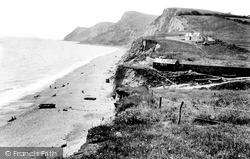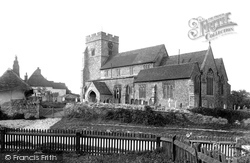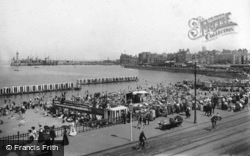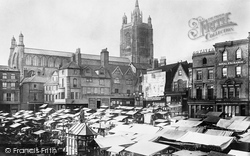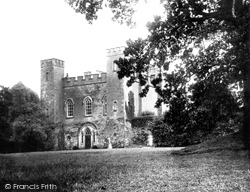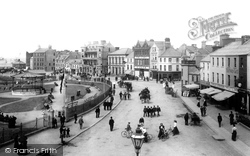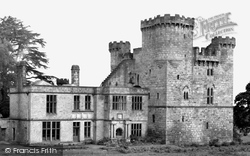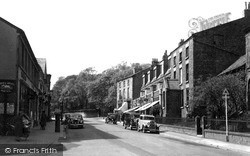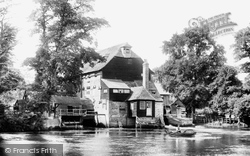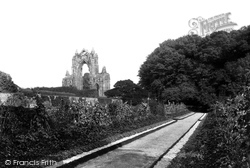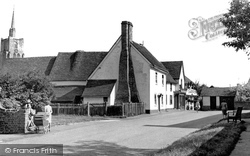Places
18 places found.
Those places high-lighted have photos. All locations may have maps, books and memories.
- Hythe, Kent
- Hythe, Hampshire
- Small Hythe, Kent
- Bablock Hythe, Oxfordshire
- Methwold Hythe, Norfolk
- Hythe, Somerset
- Hythe, Surrey
- Hythe End, Berkshire
- The Hythe, Essex
- Egham Hythe, Surrey
- West Hythe, Kent
- New Hythe, Kent
- Broad Street, Kent (near Hythe)
- Horn Street, Kent (near Hythe)
- Newbarn, Kent (near Hythe)
- Newington, Kent (near Hythe)
- Broad Street, Kent (near Hythe)
- Stone Hill, Kent (near Hythe)
Photos
360 photos found. Showing results 3,741 to 360.
Maps
101 maps found.
Books
10 books found. Showing results 4,489 to 10.
Memories
4,406 memories found. Showing results 1,871 to 1,880.
Aylesbury
Born in 1961, growing up with my grandparents on Prebendal Ave, great memories. Little shops by the old brook, catching tadpoles, Ceely Rd school also Oak Green - seems like a mystery now. I lived in Aylesbury until I was 16, my ...Read more
A memory of Aylesbury by
Southend On Sea In The 50's
Southend-on-Sea in the 50’s At the housing estate in Mitcham where we lived they had a tenants association. Every Friday night, two of the committee would go round to the Elm Court flats in Mitcham, where we lived, ...Read more
A memory of Southend-on-Sea by
Happy Childhood
I was an evacuee from Coventry at the age 6 with my mother and 4 siblings. We had been bombed out of our house and came to live in what i think was a Manse next to the Church in Coleshill Street. (on a memory lane trip years ...Read more
A memory of Sutton Coldfield by
Gagie
This was my grandmothers house and i spent many school holidays here with my uncle and aunt and their 3 sons who lived with my grandmother. Long summer days were spent "going down the den" the wooded area next to the walled garden. We played croquet ...Read more
A memory of Kellas by
Andrews Close
I was born in Andrews Close in 1969 and wondered if anyone remembered the Lorelei cafe at the top of Queens Road opposite the Pink Clock Boutique which was owned by the daughter of someone famous. My Mum and Dad owned Gingers in the 70's on Princes Road.
A memory of Buckhurst Hill by
Maesteg
IWAS BORN PATRICIA ANN MACHON IN HOVE SUSSEX IN 1943 BUT CAME TO LIVE IN MAESTEGLOVED MY STAY IN MAESTEG AND MADE A FEW FRIENDS THERE, I WENT TO PLASNEWYD IN 1948 AND MET A FEW GOOD FRIEND THEN WENT ON TO LLYNDERW SCHOOL I THINK I KNEW SANDRA SHE ...Read more
A memory of Maesteg by
Wimbledon Cinemas
Can I post a few memories of Wimbledon's 4 cinemas. I was born at the Nelson in 1943, and lived locally in Woodside until my early twenties. Just after the war the town had four cinemas. The Odeon in Worple Road was the largest and ...Read more
A memory of Wimbledon by
Tremorfa To Australia
What a great page to find. I grew up in Dunsmuir Rd , (mary coupe) swam and played at splott park. Walked carefree back and forward to st albans each day. Loved being chase by the parkie when we over stayed our welcome in the ...Read more
A memory of Splott by
1958 To 1990
My parents moved from Hackney East London to Orchard Road in 1958, I was two years old. Orchard Road connected to New Road by way of a pedestrian break in a hedge between the two roads, New Road was unmade in those early days. A ...Read more
A memory of Smallfield by
Haelfryn Thomas Lewis, 1901 1979
Haelfryn Thomas Lewis, 1901-1979 Some of Nelson’s ‘older’ residents will remember Haelfryn Thomas Lewis, the highly-respected teacher and then head-teacher of Llancaiach Primary School in Nelson between ...Read more
A memory of Nelson by
Captions
4,899 captions found. Showing results 4,489 to 4,512.
The building was restored in 1877 by the architect J Reynolds Rowe.
It was eventually purchased by the Garden City Pioneer Company in 1903, and opened as a hotel in 1904.
In common with the rest of this coastline, the sand dunes now constitute the major defence against incursion by the sea.
A campsite of 450 acres was provided free of charge by the then Birkenhead Corporation. The site was a mile long by half a mile broad, and the scouts of all nationalities camped together.
A campsite of 450 acres was provided free of charge by the then Birkenhead Corporation. The site was a mile long by half a mile broad, and the scouts of all nationalities camped together.
of the best buildings in the town: the medieval parish church; the more modern columned art gallery of 1913, which was built to house the work of a noted local artist, Alfred East; and next to that, by the
A new dock was authorised by Act of Parliament in 1881 and was opened in 1882, partly paid for by the Great Northern Railway, who extended a branch line to it.
Some of the plate came from Imber church - the small village was taken over by the Army during the last war.
Built on the side of a hill, Greywell Hill was purchased in 1787 by the 1st Lord Dorchester, formerly Sir Guy Carleton, who was the first Governor General of Canada.
The Townley family owned the hall for over 500 years; it was given to the people of Burnley by the last occupant, Lady O'Hagan, the widow of Lord O'Hagan, former Lord Chancellor of Ireland.
The photographic angle is south- eastwards, down to Bell Street Stores (centre left), run by the grocer E J Coombes.
When construction started on Heysham Harbour, the family moved out; it was bought by the Midland Railway, who were building the harbour. At the time of our photograph it was an hotel.
It was captured by the English early in 1283, who immediately set about improving its defensive capability; Edward Longshanks committed a great deal of money to the project.
The lands of Downhouse Farm ended beside the chalet and the boathouse, which was used by the Warren family in the 1930s.
By the gate leading into the churchyard are the overhanging eaves of the old priest's house, later to become the centre of the local Girl Guides troop.
Their introduction sparked the transformation of Margate from a fishing village into the most popular resort in Kent; a process which was further encouraged by the arrival of the railway, which offered
Note the pencil outlining on the church - a device used by the Frith re-touchers in the creation of artworks for postcards. Here it looks more than a little crude.
It still allowed its store of arms to be taken by the dissidents of 1798. In 1890 the Government was complaining of the continuing cost, and his Lordship compensated with a lump sum.
The pier had been provided by the landlords. Their mark on the scene is the stone-built Tower House to the left of the terraces.
Built of honey-coloured sandstone, the old castle is in fact a 14th-century L-plan tower house built by the de Middleton family.
Protected from overwhelming traffic by the encirclement of the Upton by-pass to the west and the M53 motorway to the east, Upton has changed little since these views were taken.
Today, the mill is owned and operated by the National Trust and is open to the public.
Here we see the priory ruins viewed from the south as in the view of 1885; but by the time of this photograph, Margaret, later first Lady Gisborough, along with her head gardener, Kew-trained
It also recalls the tragedy wreaked on the countryside by the Black Death and plague in the form of a graffito, '1350, wretched, fierce, violent - the dregs of the people survive to tell the tale'.
Places (18)
Photos (360)
Memories (4406)
Books (10)
Maps (101)



